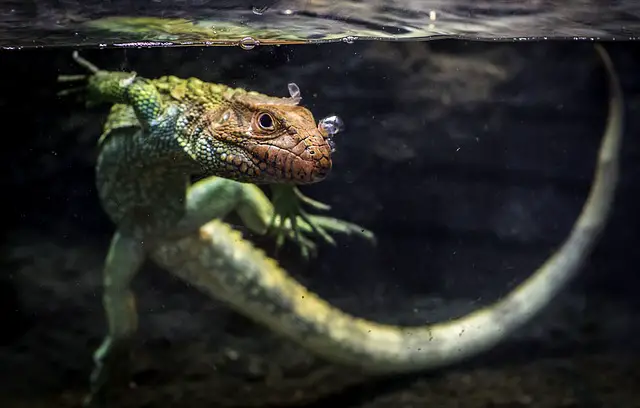For anyone who owns a pet lizard, it’s essential to understand the natural life cycle of these reptiles. Knowing how lizards die naturally will help you understand what to expect from your pet and recognize when it may be time to say goodbye. So let’s look at the common causes of death in lizards.
How do lizards die naturally?
Lizards die due to various circumstances – just like any other organism.
In the wild, lizards usually succumb to age-related causes; this is often the most common method of death they experience.
Additionally, they can be at risk of predation from cats, owls, or raccoons. Severe weather can also be detrimental or even fatal for some species.
Lizards that live in areas prone to extreme cold may have problems with hibernation, as it can lead to death if not executed properly.
Furthermore, some are vulnerable to diseases and infections as well as parasites which can cause an array of health problems leading to death.
Considering these factors, one can conclude that lizards die naturally in similar ways as other organisms.
However, specific scenarios largely depend on the type and environment of the lizard species.
Age-Related Death
Just like humans, lizards grow old and eventually die from age-related illnesses.
As they age, their immune systems weaken, and they become more susceptible to diseases and infections.
In addition, their bodies begin to slow down, making it more difficult to catch prey or avoid predators.
Unfortunately, there is no way to tell how long a lizard will live; this depends mainly on the species and individual genetics.
Accidents
Lizards can also die prematurely due to accidents such as being hit by a car or falling from a significant height (such as an open window).
In some cases, they may escape from their enclosure or habitat and wander off into unfamiliar territory, making them more vulnerable to predators or other dangers.
Furthermore, if your pet is kept outdoors in an area with frequent storms—such as near the coast—they may be at risk of being struck by lightning or swept away in floodwaters.
Injuries & Diseases
Injuries are another common cause of death in lizards—especially if they have been mishandled or not provided with proper nutrition and care throughout their lives.
Poor diets can lead to health problems such as metabolic bone disease that can eventually be fatal if left untreated.
Additionally, parasites and other infections can spread quickly among captive lizards in close contact with each other. So it’s essential to monitor your pets closely for any signs of illness.
Lifespans of the popular lizards
1. Bearded Dragon
The lifespan of a bearded dragon is typically 10-12 years, though some have been known to live up to 20 years.
2. Blue-Tongued Skink
The lifespan of a blue-tongued skink is typically 10-15 years, though some have been known to live up to 20 years.
3. Leopard Gecko
The lifespan of a leopard gecko is typically 10-20 years, though some have been known to live up to 30 years.
4. Red-Eyed Tree Frog
The lifespan of a red-eyed tree frog is typically 5-10 years, though some have been known to live up to 15 years.
5. Savannah Monitor
The lifespan of a savannah monitor is typically 15-20 years, though some have been known to live up to 30 years.
Conclusion:
While most lizards live relatively short lives compared to mammals such as dogs or cats, understanding how lizards die naturally is critical for responsible pet owners who want to provide the best possible care for their pets throughout their lifetime.
By recognizing potential hazards such as age-related illnesses, accidents, injuries, and diseases, you can keep your reptiles safe while ensuring they remain healthy until the end of their natural life cycle.




